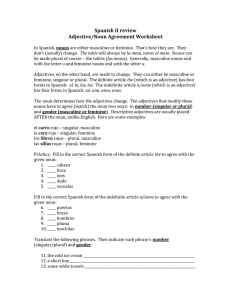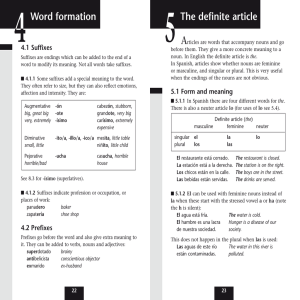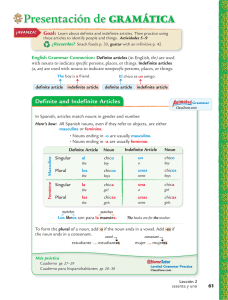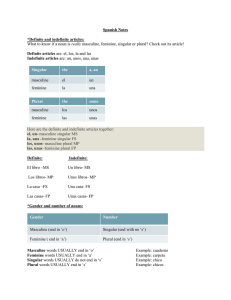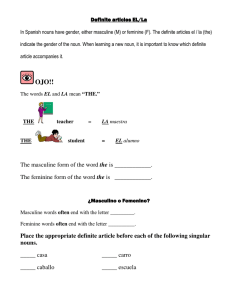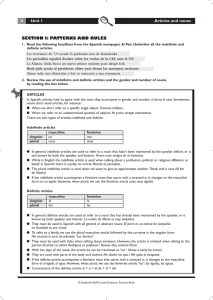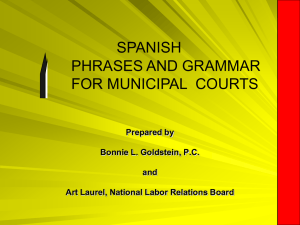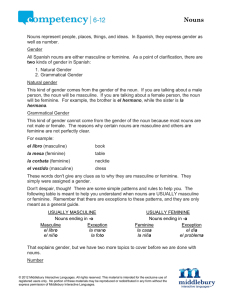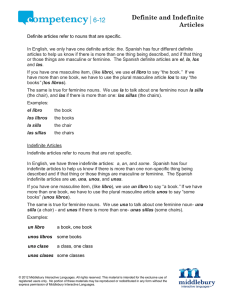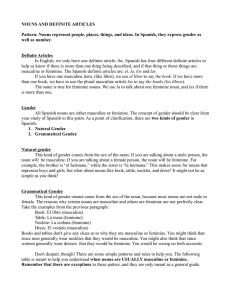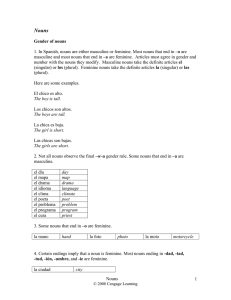NOUNS: GENDER AND NUMBER Masculine Nouns Feminine
Anuncio
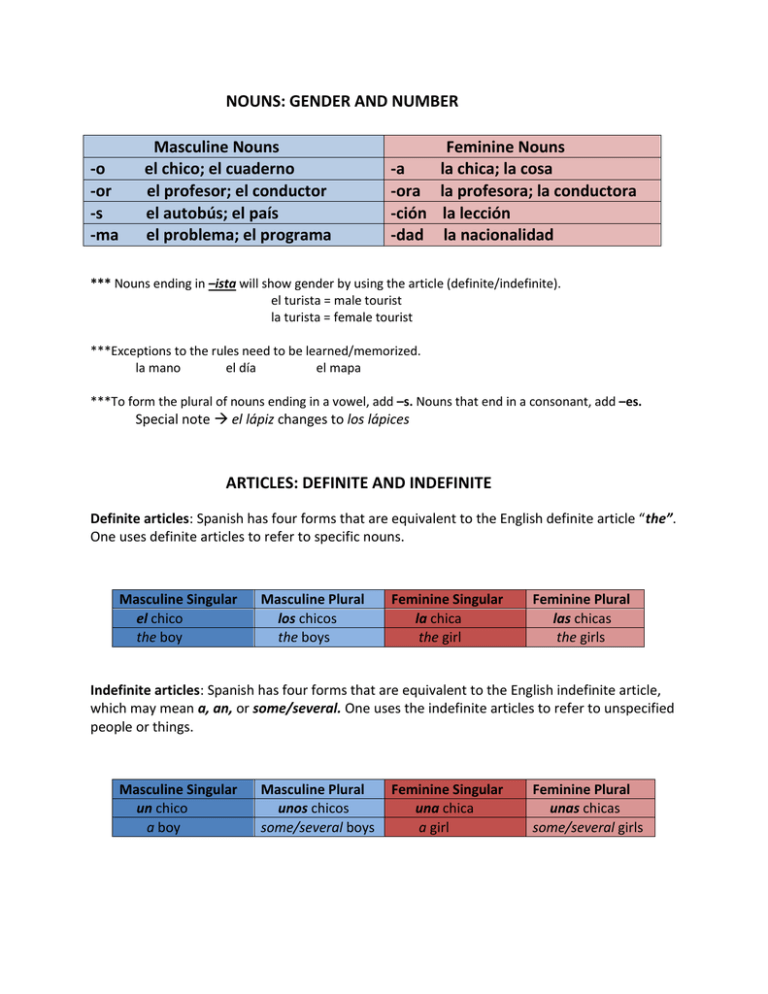
NOUNS: GENDER AND NUMBER -o -or -s -ma Masculine Nouns el chico; el cuaderno el profesor; el conductor el autobús; el país el problema; el programa Feminine Nouns -a la chica; la cosa -ora la profesora; la conductora -ción la lección -dad la nacionalidad *** Nouns ending in –ista will show gender by using the article (definite/indefinite). el turista = male tourist la turista = female tourist ***Exceptions to the rules need to be learned/memorized. la mano el día el mapa ***To form the plural of nouns ending in a vowel, add –s. Nouns that end in a consonant, add –es. Special note el lápiz changes to los lápices ARTICLES: DEFINITE AND INDEFINITE Definite articles: Spanish has four forms that are equivalent to the English definite article “the”. One uses definite articles to refer to specific nouns. Masculine Singular el chico the boy Masculine Plural los chicos the boys Feminine Singular la chica the girl Feminine Plural las chicas the girls Indefinite articles: Spanish has four forms that are equivalent to the English indefinite article, which may mean a, an, or some/several. One uses the indefinite articles to refer to unspecified people or things. Masculine Singular un chico a boy Masculine Plural unos chicos some/several boys Feminine Singular una chica a girl Feminine Plural unas chicas some/several girls

